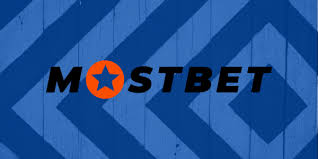
The Role of Blockchain in Modern Technology
Blockchain technology has emerged as one of the most revolutionary inventions in the digital era. Through this decentralized ledger system, data integrity is maintained, ensuring that records are immutable and transparent. From financial services to healthcare and supply chain management, blockchain presents significant improvements. For deeper insights into financial opportunities using this technology, you can visit The Role of Blockchain in Online Casinos: 2025 Insights https://mostbet-kz-online.com/.
Understanding Blockchain Technology
At its core, blockchain is a digital ledger that records transactions across multiple computers in such a way that the registered transactions cannot be altered retroactively. This technology allows for secure, transparent, and verifiable transactions and data sharing. Each block in the chain contains a number of transactions, and every time a new transaction occurs, a record of that transaction is added to every participant’s ledger. Through cryptography, blockchain ensures that data cannot be tampered with, building trust among users.
Blockchain in Financial Services
One of the earliest applications of blockchain technology was in the financial sector through cryptocurrencies such as Bitcoin. Blockchain provides a way to conduct secure and transparent transactions without the need for intermediaries. Traditional banking systems involve numerous intermediaries, which can slow down transactions and increase costs. However, with the use of blockchain, transactions can be conducted directly between parties, significantly reducing the time and fees involved.
Moreover, blockchain technology enables real-time processing and greater accountability since all transactions are recorded transparently. Smart contracts – self-executing contracts with the terms directly written into code – allow businesses to automate agreements, further enhancing efficiency. As governments worldwide begin to recognize the potential of digital currencies and blockchain, the financial landscape is poised for transformation.
Blockchain in Supply Chain Management
Another industry where blockchain is making waves is supply chain management. Businesses face significant challenges in tracking products and ensuring their authenticity. With blockchain, every transaction related to a product can be recorded in a decentralized ledger. This not only improves transparency but also helps in verifying the provenance of goods.
For instance, retailers can trace the origin of their products, ensuring quality and compliance with regulations. Companies like Walmart and IBM are already utilizing blockchain for tracking food products, significantly reducing the time taken to trace the source of contamination in cases of food safety issues. The potential for blockchain in simplifying and securing supply chains is vast, making it an ideal solution for combating fraud and increasing consumer confidence in products.
Blockchain in Healthcare
The healthcare sector stands to benefit tremendously from blockchain technology. Patient records, medical histories, and transactional data can be securely stored and shared among healthcare providers with the patient’s consent. By applying blockchain, healthcare organizations can create a system where patient data is readily accessible to authorized personnel, enhancing the quality of care.

Moreover, blockchain can streamline the process of drug traceability. It ensures that pharmaceuticals are authentic and have not been tampered with before reaching consumers. This capability can help combat the significant problem of counterfeit drugs, ensuring that patients receive safe and genuine medications.
Blockchain and the Internet of Things (IoT)
The Internet of Things (IoT) refers to the network of physical devices connected to the internet, enabling them to collect and exchange data. Blockchain can enhance the security and efficiency of this network. By integrating blockchain technology, IoT devices can communicate in a more secure and reliable manner.
For instance, in a smart home setting, appliances can interact with each other and automate processes without needing a central control system, all while ensuring data integrity. Blockchain enables these devices to have a decentralized method of communicating and maintaining data records, addressing potential security concerns while also facilitating a more responsive and adaptable environment.
The Challenges Ahead
Despite its numerous advantages, the adoption of blockchain technology is not without challenges. Scalability remains one of the most significant hurdles. As more transactions take place, the demand for processing power increases, potentially leading to slower transaction speeds. Furthermore, regulatory frameworks across different nations are still being established, creating uncertainties for businesses looking to adopt blockchain solutions.
Additionally, there is a need for a greater understanding of blockchain among stakeholders. Many organizations may hesitate to invest in this technology due to a lack of knowledge and expertise. Education and awareness are key to overcoming these challenges and unlocking the technology’s full potential.
The Future of Blockchain Technology
As more industries begin to experiment with and invest in blockchain technology, its applications will continue to expand. We can expect to see advancements in areas such as digital identity verification, voting systems, and even real estate transactions. The shift towards a more decentralized internet known as Web 3.0 could be significantly driven by the rise of blockchain, reshaping how we interact online.
Moreover, collaborations between traditional institutions and blockchain startups could help standardize best practices and promote wider adoption of this technology. Innovations such as blockchain-as-a-service (BaaS) are making it easier for businesses to implement blockchain solutions without needing extensive technical knowledge.
Conclusion
In conclusion, blockchain technology holds tremendous potential across various sectors, providing solutions that enhance security, transparency, and efficiency. While challenges remain, the ongoing development and exploration of blockchain applications suggest a promising future. As more entities recognize the value of blockchain, its role in shaping modern technology will undoubtedly grow. By encouraging an environment of collaboration, education, and innovation, we can fully harness the transformative power of blockchain for society’s benefit.